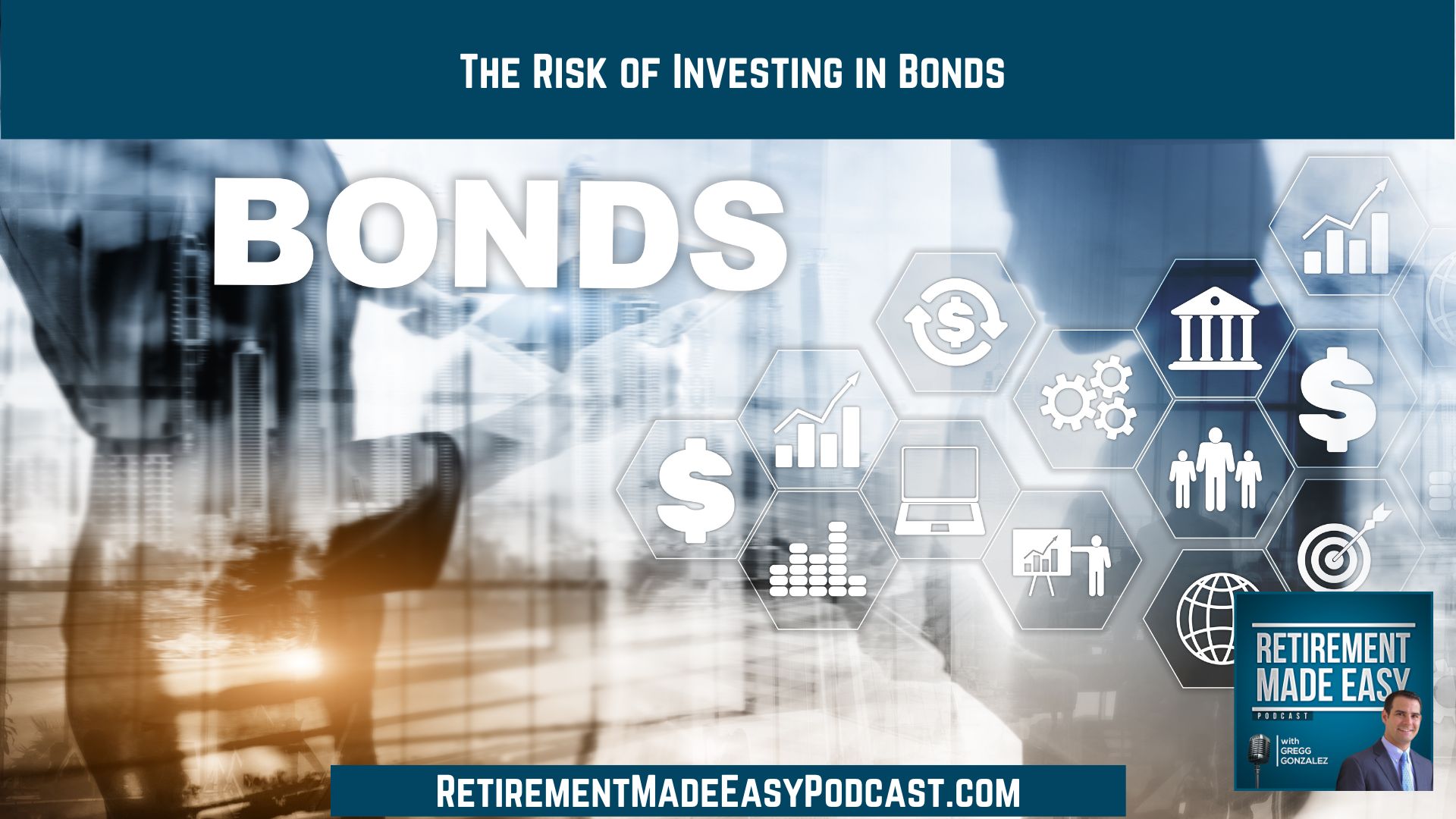
Why are some bond investors running for the exits? Is it risky to have bonds in your portfolio? Most people associate bonds with being a “safe” play in their portfolio to balance out the “riskier” stocks. But the truth is that investing in bonds can be just as risky. So in the first part of this special episode, I’ll dive into the reason WHY investing in bonds can be a risky play.
In the second half of this episode, I’ll share a case study of a current client. It’ll include some tips and strategies that everyone can learn from and apply to their own retirement planning. (HINT: It’s all about identifying and eliminating gaps in your retirement planning). Don’t miss it!
You will want to hear this episode if you are interested in…
- [2:06] Build your retirement action plan at RetirementMadeEasyPodcast.com
- [2:57] The risk of investing in bonds in your retirement portfolio
- [9:08] What is your budget for retirement?
- [13:19] How much do you need to save for retirement?
- [16:23] Don’t forget to factor in the cost of health insurance
- [17:43] What rate of return do you need from your investments?
- [18:18] How you get income from the investments in your 401k
- [20:26] What gaps exist in your retirement plan?
The risk of investing in bonds in your retirement portfolio
What is a bond? If you buy a McDonald’s corporate bond for $10,000, you’re essentially loaning $10,000 to McDonald’s and they pay you interest for 10 years. Let’s say the interest rate is 2%. So they’re paying you $200 in interest every year. At the end of the 10 years, they give you back your $10,000. That’s the idea behind a bond. You’re getting a payment.
But let’s say interest rates dramatically rise. Now, you can buy a bond that pays a 4% interest rate. No one is going to buy your McDonald’s bond that’s paying 2% interest when they can buy a new one paying 4% interest. The bond lost value because people aren’t willing to pay more for it.
You can buy bonds individually, as well as in index or mutual funds. As of June 30th, 2022, the Fidelity® U.S. Bond Index Fund was down 10.25%. It goes to show that a fixed-income fund can lose value. As interest rates continue to rise, the values will continue to go down. Bonds can be risky in an environment where interest rates are rising.
So what should you do? Listen to hear my thoughts!
A Case Study: Eliminate gaps in YOUR retirement
I’ve been consulting for a couple who were concerned about their portfolio losses in 2022 and thought they may need to push their retirement. So where did we start? With a budget.
(Check out my FREE budgeting tool to help you nail down your retirement budget.)
Step #1: Look at your take-home pay. If you have credit card debt, your spending is exceeding your pay. If you don’t have debt, do you have an emergency fund? After crunching the numbers, we determined this couple would need 1.6 million dollars with a $40,000 emergency fund to support the retirement of their dreams. They’re just on the edge of being able to retire.
Step #2: Identify and eliminate gaps: 30% of the husband’s 401k was in company stock (and it didn’t pay a dividend). If you want to retire before 59 ½ and are concerned about the early withdrawal penalty, you can take withdrawals from a 401k without the penalty. But you can’t roll the 401k to an IRA without paying the 10% early withdrawal penalty. But, they will want to roll their 401ks into a Roth IRA before they turn 72 or they’ll have to withdraw the required minimum distributions from the 401k.
Step #3: Factor in health insurance. This couple didn’t realize that COBRA would be around $800 a month EACH and would only last up to 18 months. After that, you need a game plan to get to 65 (when you are enrolled in Medicare). So we talked about what their options were.
Step #4: What rate of return do you need from your investments? This couple needed a 4.5% rate of return to get through a 30-year retirement. That piece of information was the #1 thing they felt they needed to know.
I also helped this couple determine how to withdraw money from their 401k and where to allocate it in their budget. Listen to the whole episode to learn more!
Resources & People Mentioned
- Build your retirement action plan at RetirementMadeEasyPodcast.com
- Get a FREE 30-minute retirement coaching call
- The Retirement Bucket Strategy
- Fidelity® U.S. Bond Index Fund
Connect With Gregg Gonzalez
- Email at: Gregg@RetireSTL.com
- Podcast: https://RetirementMadeEasyPodcast.com
- Website: https://StLouisFinancialAdvisor.com
- Follow Gregg on LinkedIn
- Follow Gregg on Facebook
- Follow Gregg on YouTube



